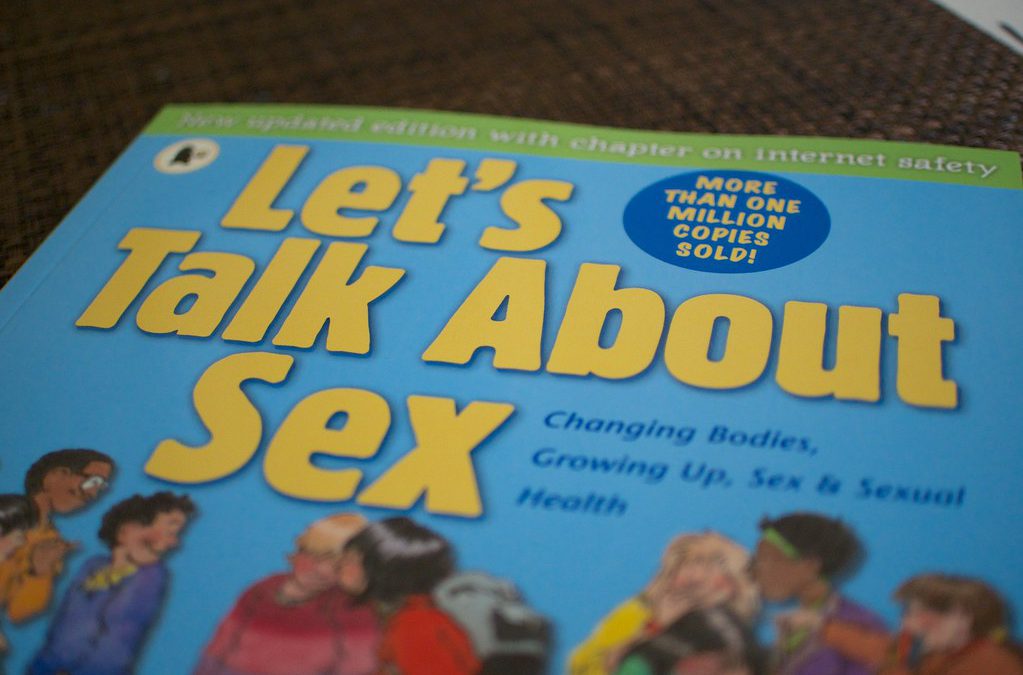In early June, New York City health officials offered guidelines on how to have safe sex during the coronavirus pandemic. The document — which attracted a considerable amount of attention on social media — noted that “people will and should have sex” despite the health crisis but said sex and sexuality “need to be balanced with personal and public health.”
Outside of the city, the communication has been considerably more muted. While sex education isn’t mandated in all New York schools, the topic is even more important because of the pandemic, according to Pascale Saintonge Austin, who directs family planning and pregnancy prevention programs for the Children’s Aid Society, which is based in Manhattan.
“Part of comprehensive sex ed includes self-esteem, decision-making and consent,” Austin said. “With social distancing and isolation and not being able to see your friends … it’s going to be harder for (young people) to say no because they don’t want to make the other person upset because of this need for connection.”
School acts as a refuge for many students — and without it, they’re finding other ways to escape, she said: “Whenever young people have free time, this is when they engage in risky sexual behavior.”
During the regular school year, schools in Albany teach sex ed in partnership with the region’s Planned Parenthood to children in grade six for one semester, as well as teens for one semester in their high school career. Once school moved online in March, teachers took responsibility for tackling the subject by using video content from AMAZE.org, an organization that produces age-appropriate online sex ed lessons.
Topics included puberty, body parts, partner conversations, abstinence and contraception, according to Ron Lesko, spokesman for the Albany city school district.
The district communicated with families about the change in curriculum before teachers shared the videos; the district didn’t receive negative feedback from parents or students. Guardians also could opt their children out of contraception teaching, which no one did.
“One of the considerations in deciding what content we’re going to deliver in that kind of (online) forum is that there may be other people, including younger siblings, watching that video at home,” Lesko said. “That’s something we can’t control when we’re teaching in a virtual environment.”
Just like any other subject, health is an important part of the district’s curriculum, Lesko said.
“It was part of the online schedule for students that we treated very seriously, just like we do all the other subjects,” Lesko said.
For Bethlehem Central School District, sex education didn’t change because of the pandemic, according to the district’s spokesperson JoEllen Gardner. In Troy, students didn’t learn sex education remotely after the March lockdown because they were past that point in the curriculum, according to district spokeswoman Erin Clary. And for Saratoga Springs City School District’s sex education classes, Maura Manny, the director of community outreach and communications, only said the district follows the New York state curriculum for health education.
At the U.S. Senate Health, Education, Labor and Pensions Committee hearing June 30 in Washington D.C., Dr. Anthony Fauci said the government needs to do absolutely everything it can to get students back to school.
While Albany’s school district waits for more guidance from the state of New York, planning for the curriculum including sex education remains an ongoing conversation, Lesko said.
Across the nation, only 17 states require sex education content to be medically accurate and New York is not among them, according to the Guttmacher Institute, a nonprofit focusing on sexual and reproductive health and rights. And while New York does not mandate sex education, it does require education on the perils of HIV.
As with many other aspects of education during a time of forced remote learning, parents might be taking up a bigger role in sex ed — which can be beneficial, according to Tina Schermer Sellers, a therapist, sex educator and author of “Sex, God & the Conservative Church,” who aims to help clients and students remove shame from sex.
When it comes to talking about sex ed, it’s important for parents to play a role and extend the conversation outside the walls of school, Sellers said.
“If you can become your child’s sex educator, relationship-expert educator … your child is going to trust you more and see you more as a resource,” Sellers said. “That’s often what parents are wanting. They’re not wanting their child to kind of disappear in their adolescence and keep everything underground.”
If children don’t want to speak about these topics, they’re not supposed to, Sellers said. Instead, she says to have 100 one-minute conversations, not just one 100-minute conversation — and online resources help.
If a school doesn’t have a good curriculum, or a teacher or youth leader wants to be able to instruct, they can use online sites to guide them in the process, Sellers said.
Ensuring students are mentally healthy is the most positive potential outcome of sex education, Children Aid’s Austin said.
“If they’re mentally healthy and able to cope during this, they’re less likely to engage in risky sexual health behaviors,” Austin said.


